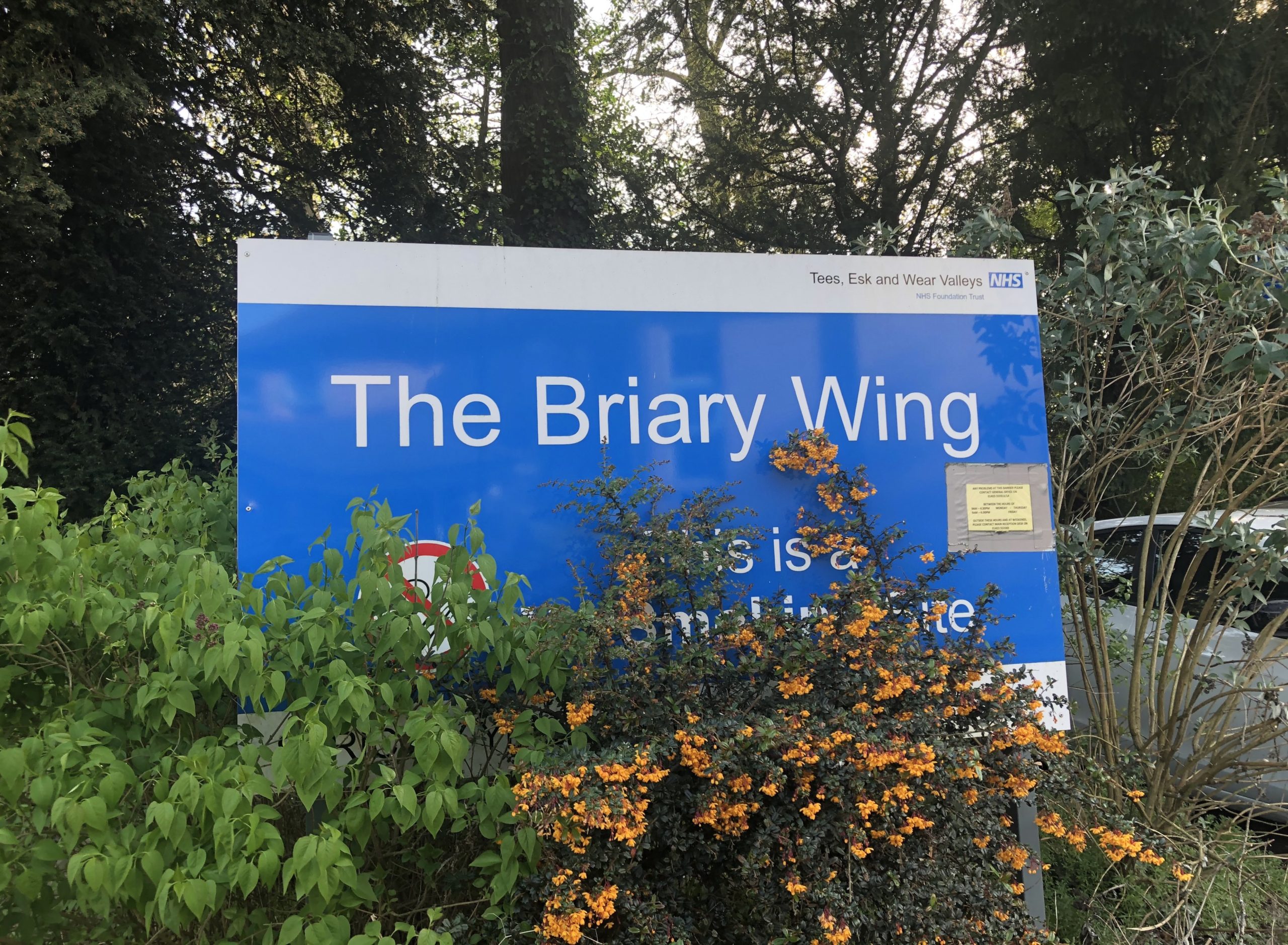When the decision was taken a year ago to close the Briary Wing and move inpatient mental health services to York, it marked the end of a long and intensely political debate about the future of adult mental health inpatient facilities in the Harrogate district.
Plans had been well advanced for a 36-bed facility at Harrogate’s Cardale Park. Planning permission had been approved and work had begun when – a year ago – Harrogate and Rural District CCG and the Tees, Esk and Wear Valleys (TEWV) NHS Foundation Trust (which runs mental health services) voted to halt the project and focus on sending patients to a new facility in York.

The site at Cardale Park where the mental health inpatient unit was set to be built
Harrogate and Rural District CCG defended its decision at the time, arguing the move to York was to produce “the best possible care” and it wanted to invest more in community care to prevent people needing inpatient facilities – but the reality was the CCG had a £14m deficit and had to prioritise funds.
To many politicians of all persuasions, it was another example of the long term chronic under-funding of mental health services. Conservative councillor Jim Clarke, the Head of North Yorkshire County Council’s Scrutiny of Health Committee, said at the time:
“This is not a recent problem, this is the result of years, decades of underinvestment in mental health.”
The Liberal Democrats, too, expressed concern that patients and their families would have to travel to York – county councillor Geoff Weber said Harrogate had been “screwed by the CCG and NHS”.
This week, however, the CCG has reiterated its statement that the decision was not based on finance.
A spokesman said:
“The decision was made based on best practice in providing high quality mental health inpatient services and expanding the services locally available in the community. The decision to invest in community services and redeploy inpatient services to York was taken after extensive engagement.
“The solution adopted was the only option that maximised patient safety and experience, while remaining true to its commitment to providing care as close to home as possible.”
Decision came against a backdrop of health service debt and restructuring
Since 2008 mental health services (both inpatient and community based services) in the Harrogate district have been operated by Tees, Esk and Wear Valleys NHS Foundation Trust, a specialist mental health Trust. Clinical Commissioning Groups effectively “buy” services such as inpatient mental health beds from the Trust.
The decision to close the Briary Wing and reject the Cardale Park option came at a time of change for the Harrogate District CCG. In November last year NHS England agreed to merge Harrogate with two other CCGs: Hambleton, Richmondshire and Whitby, and Scarborough and Ryedale.
The North Yorkshire CCG was formed on April 1st 2020 – in the height of the current coronavirus crisis – with a requirement to cut 20% from its admin budget.
This new North Yorkshire CCG will now be responsible for “buying” mental health services from TEWV for the Harrogate district. The CCG though has a projected deficit of £18m for this coming year and has proposed a £72m savings programme over the next 5 years.
The Stray Ferret put a series of question to the CCG and got the following responses:
Will the 72 beds in York be enough? If it is full, where will inpatients from our district be sent?
“Through the modelling undertaken we are confident that there will be enough beds at the new unit, especially given the expectation that there will be a reduction in admissions and length of stay. However, as now, it is sometimes more clinically appropriate for patients to be placed elsewhere.”
Will the newly merged CCG make its administrative and managerial cost savings, including the proposed £72m?
“The CCG is now operating under a partnership arrangement with TEWV for mental health and learning difficulties which also includes NYCC. The partnership is committed to delivering the mental health investment standard which ensures that investment into mental health is protected but there is acknowledgement that services need to transform and innovate to deliver improvements and meet an increasing demand for services.
“The 20% reduction in running costs applies to all CCGs and this has been achieved through the recent merger to form the North Yorkshire CCG.”
What impact will the current pandemic have on all health services and what will be prioritised as a result?
“Under the North Yorkshire Mental Health and Learning Disability Partnership, we are working jointly with TEWV to agree how the funding available is used.”





